Description
Doris Orsan – violin
Johannes Tonio Kreusch – guitar
With the CDs “Dialogues” and “Tangos & Canciones,” guitarist Johannes Tonio Kreusch and violinist Doris Orsan revived the rarely heard duo of violin and guitar. While the spectrum there ranged from classical romanticism to the Caribbean musical cosmos to modern music, they initially concentrate on Argentinian sound worlds in their new throw “Libertango”. For a good reason: the album not only celebrates their pas-sion for this music, it is based above all on the many friendships they have cultivated with musicians from this field.
Thus, one root of “Libertango” is Kreusch’s musical partnership with Giora Feidman, established a few years ago. Many know him as the “King of Klezmer,” but forget that he is Argentinian and accordingly influenced by tango and milonga, tango nuevo, but also Alberto Ginastera’s art music. Feidman advised Kreusch on the selection and interpretation of some pieces, such as the titular “Libertango” or the lesser known “Zita”, both by the Tango Nuevo founder Astor Piazzolla. Or the classical tango composer of the turn of the century Ángel Villoldo, whose classic “El Choclo” is masterfully interpreted by Kreusch and Orsan.
Kreusch’s friendship with the equally Argentinian guitarist Maximo Diego Pujol is even older. The 65-year-old was also strongly influenced by Piazzolla and Argentine folklore and is now considered one of the most important Latin American composers of the 20th century. His more than 40 published works are played by guitarists worldwide. “Libertango” now features the world premiere of “Autovía,” a solo guitar piece com-posed for Kreusch. Even more, Pujol arranged almost all the pieces on the album, for the first time in col-laboration with another close friend of Kreusch and Orsan.
This is the Cuban composer Tulio Peramo, whom Kreusch met in Havana almost 30 years ago, who later performed in Germany for the first time at festivals curated by Kreusch, and who has since also written quite a few pieces for Kreusch and Orsan. Like no other, Peramo understands how to blend the styles and colors of Cuban music with the forms and traditions of European classical music. This also permeates the masterful arrangements on “Libertango” in many places. Which, of course, requires not only technical excel-lence, but also musical intelligence and artistic range. What Kreusch and Orsan already bring along by virtue of their biographies.
Doris Orsan studied violin at the Mozarteum in Salzburg and at the Juilliard School of Music in New York. Concert tours have taken her to many German cities and to European festivals, such as the Festival Clássico en Verano in Madrid, the Festival Musique de Chambre in Beausoleil, France, and the Ant-werpen Festival. Her awards include the Austrian State Prize for Culture, and her summa-cum-laude dissertation on the vio-lin concertos of W. A. Mozart has been published by Königshausen & Neumann Verlag under the title “Ein Genie reift”. Her CD recordings include not only classical literature, but also contemporary works. On her album “Ciaccona” she plays solo works by Bach as well as a work by the Munich composer Nikolaus Brass.
Her husband Johannes Tonio Kreusch also studied at the Salzburg Mozarteum and at the Juilliard School of Music in New York. Since his solo debut at New York’s Carnegie Recital Hall in 1996, his concert tours have taken him throughout Europe, the United States, the Far East and Latin America. Kreusch also gives semi-nars and master classes, is the author of numerous publications and one of the most distinguished festival organizers. He directs the international guitar festivals in Wertingen and Hersbruck – the latter of which he has made into one of the most important guitar festivals in Germany – as well as, together with his brother, jazz pianist Cornelius Claudio Kreusch, the award-winning concert series “Ottobrunner Kon-zerte” and the groundbreaking contemporary festival “Look Into The Future” in Burghausen. The collaboration with his brother – who also run a music publishing house and internet distribution as “KreuschBros.” – opened his eyes beyond classical music at an early stage. In addition to classical musicians or guitar stars such as Andy York, Carlos Barbosa-Lima or Badi Assad, he works with world musicians and improvisers such as Markus Stockhausen or Giora Feidman. Johannes Tonio Kreusch celebrated his early breakthrough with ground-breaking recordings of the Brazilian guitarist and composer Heitor Villa-Lobos – his love for Latin American music was thus pronounced early on.
Together, Doris Orsan and Johannes Tonio Kreusch have been a successful chamber music duo for many years, which not only cultivates the standard repertoire, but also includes many contemporary compositions – often dedicated to them and premiered by them. And so on “Libertango” the two find their own way between “tristeza” and “allegria”, between melancholy and foaming joy of life, between the elements of classical tonality and Latin American rhythm and phrasing. What makes new “unheard” pieces out of classics that are sometimes heard too often, and at the same time makes world premieres sound like “standards”.
And the two would not be the pioneering, forward-looking artists that they are, if they did not finally estab-lish a connection to the very own European tradition on “Libertango” and direct the view into the future. First with the six short Romanian Folk Dances by Béla Bartók, which build a transcontinental bridge to the art-musical processing of folk music. And finally with a final exclamation mark, again a world premiere of a work written for Kreusch and Orsan by another friend. The Bulgarian guitarist and composer Atanas Ourkouzounov, who lives and teaches in Paris, dedicated to them the two-part “Rhodope”, divided into a song (Molto delicato) and a dance (Allegro ritmico). It is a modern hymn to the mountains of Ourkouzounov’s homeland, ingeniously working with the melismas and rhythms of Bulgarian music as well as a modern, but always accessible formal language, which demands everything from the two of them.
And so “Libertango” not only rounds out into a musical masterpiece, it is also an ode to friendship, an ad-vocacy for exchange across all borders, a celebration of serving music together, and a resounding expression of humanity.
Click on the button to load the content from www.johannestoniokreusch.com.

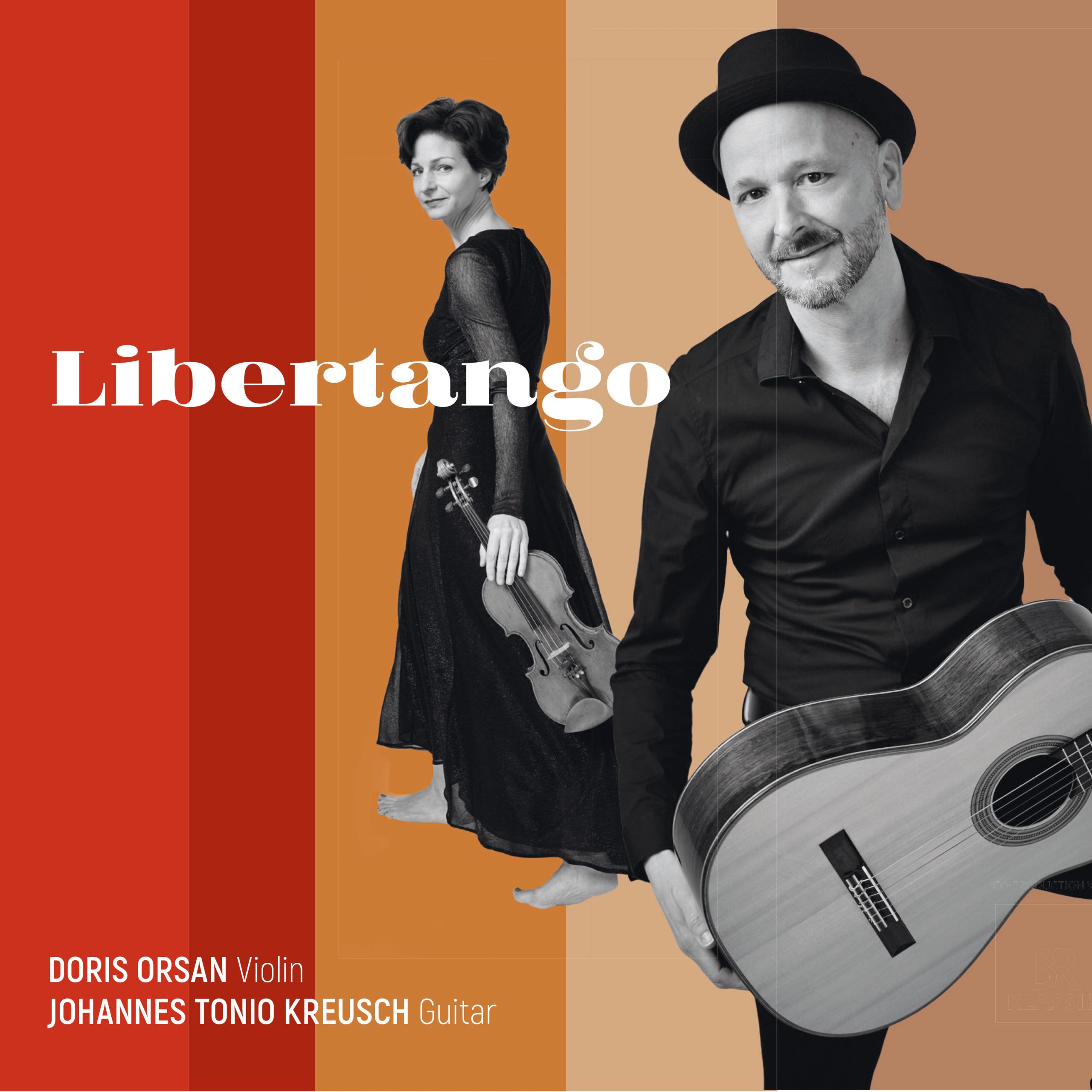
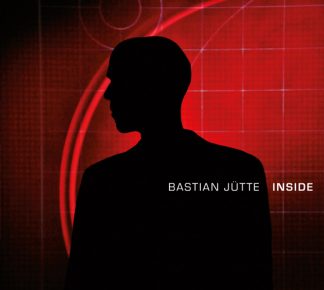
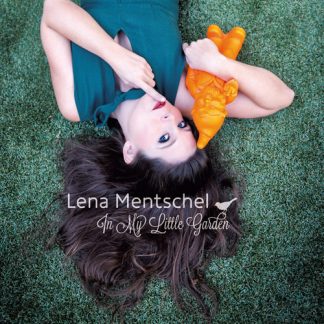
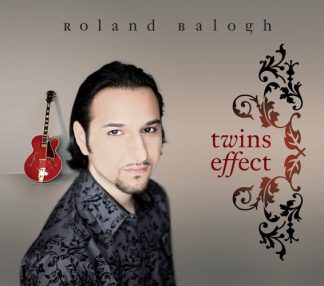
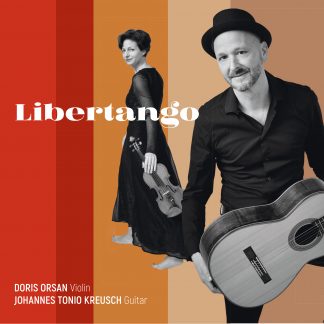
Reviews
There are no reviews yet.